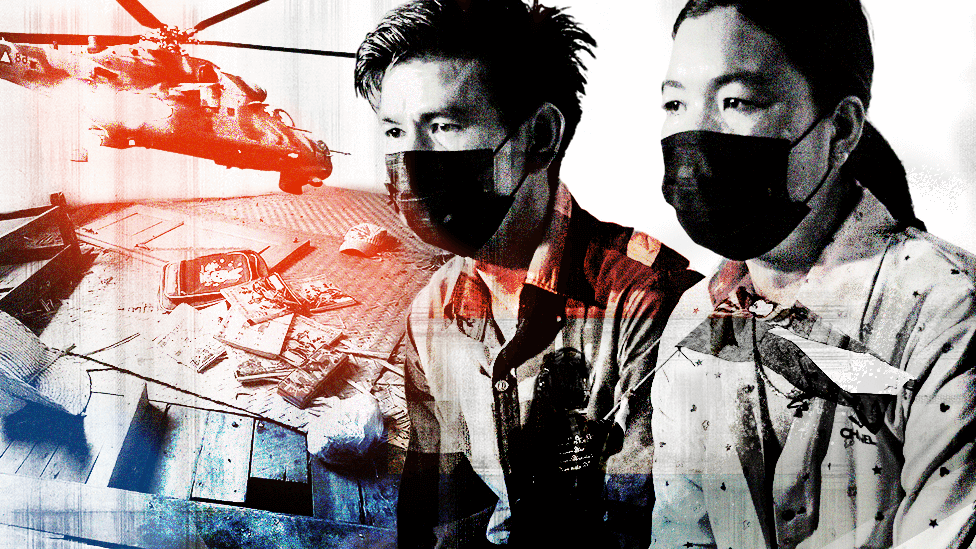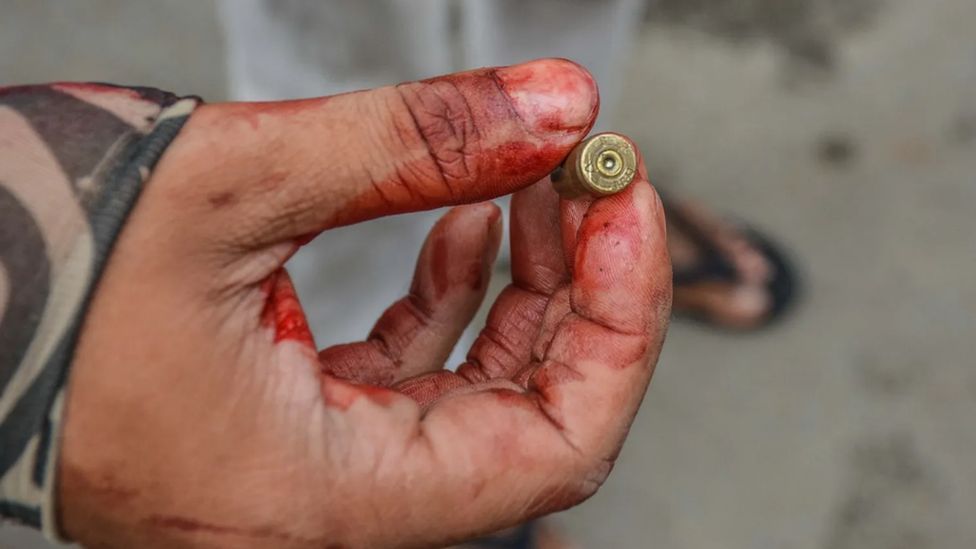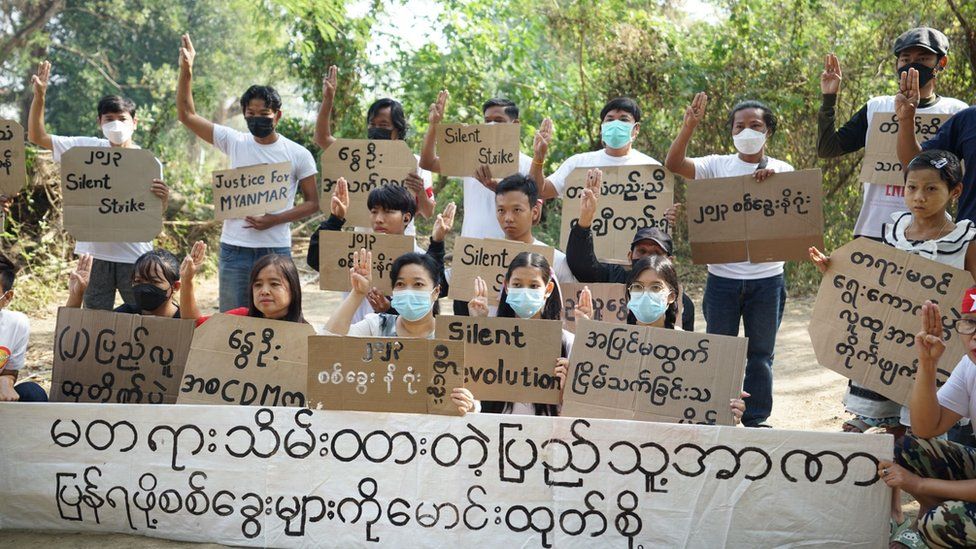
Pro-democracy activists in Myanmar are holding a “silent strike” to mark two years since a military coup.
Protesters have urged the public to remain indoors and for businesses to close for Wednesday’s anniversary.
The call came as the UK, US, Canada and Australia announced fresh sanctions against army-linked firms.
The military administration on Wednesday extended a state of emergency for six months.
It had previously said the country was facing “unusual circumstances” – prompting fresh doubt over its pledge to hold an election this year.
Thinzar Shunlei Yi, a pro-democracy activist, said resistance against the military was continuing, particularly in rural areas.
“The main message of the silent strike is to honour the fallen heroes and heroines and to reclaim the public space as our own,” she told the BBC, adding that the aim was to send a clear message that the military “shall never rule us”.
Protesters also gathered outside Myanmar’s embassies in Thailand and Japan, chanting anti-military slogans and holding portraits of jailed democracy leader Aung San Suu Kyi.
A small pro-military demonstration took place in Yangon, where an estimated 200 supporters marched through the city centre escorted part of the way by soldiers, AFP news agency reported.
Two years after a coup which catastrophically misread the public mood in Myanmar, the statistics tell their own, dismal story.
More than 2,900 people have been killed during the junta’s crackdown on dissent, according to monitoring group the Assistance Association for Political Prisoners.
One-and-a-half million people have been displaced, 40,000 homes have been burned down, eight million children are no longer in school, and 15 million people are judged by the UN to be dangerously short of food.
Much of the country is caught up in a brutal civil war. Yet the military is still refusing to negotiate with its opponents, as it promised to do in a meeting with neighbouring countries shortly after the coup.
Instead, it has plans for an election which would almost certainly exclude Aung San Suu Kyi, who resoundingly won the last election, and much of her party, the National League for Democracy.
Those loyal to her are calling on citizens to boycott any poll organised by the military, arguing it would be illegitimate and impractical. The UN says these would be “sham elections”.
The military’s acknowledgement this week that it had failed to normalise the situation may force it to postpone the election – originally scheduled for August this year – and extend the state of emergency, prolonging the grim stalemate in which Myanmar is trapped.
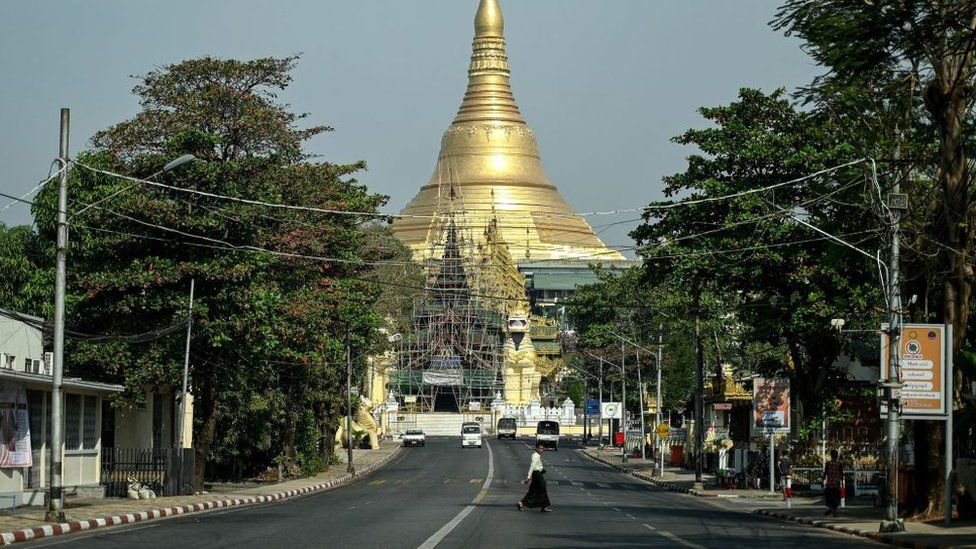
Western nations used Wednesday’s anniversary to coordinate new rounds of sanctions against the military and its supporters.
The UK targeted, among others, companies supplying aviation fuel to the military, which it said were “enabling its barbaric air-raiding campaign in an attempt to maintain power”.
British Foreign Secretary James Cleverly said the sanctions were aimed at “reducing the military’s access to finance, fuel, arms and equipment”.
Australia announced its first sanctions against the military, aimed at 16 individuals “responsible for egregious human rights abuses”, as well as two major military-controlled conglomerates, which dominate the country’s economy.
Sanctions by the US targeted the military-approved election commission, which “the regime has deployed to advance its plans for deeply flawed elections”.
The National Unity Government – a parallel administration that leads opposition to the military – welcomed the sanctions, calling them “significant measures” to tackle the conflict, particularly air strikes by the military.
It called on countries to place further “aggressive, targeted sanctions” on the military regime and those who supported and supplied it.
Amnesty International’s Montse Ferrer told the BBC that moves to stop the supply of aviation fuel to the Myanmar military were “an important step” but that more needed to be done.
“Other states should follow Canada’s lead in suspending the direct and indirect supply, sale or transfer – including transit, trans-shipment and brokering – of aviation fuel to Myanmar,” she said.
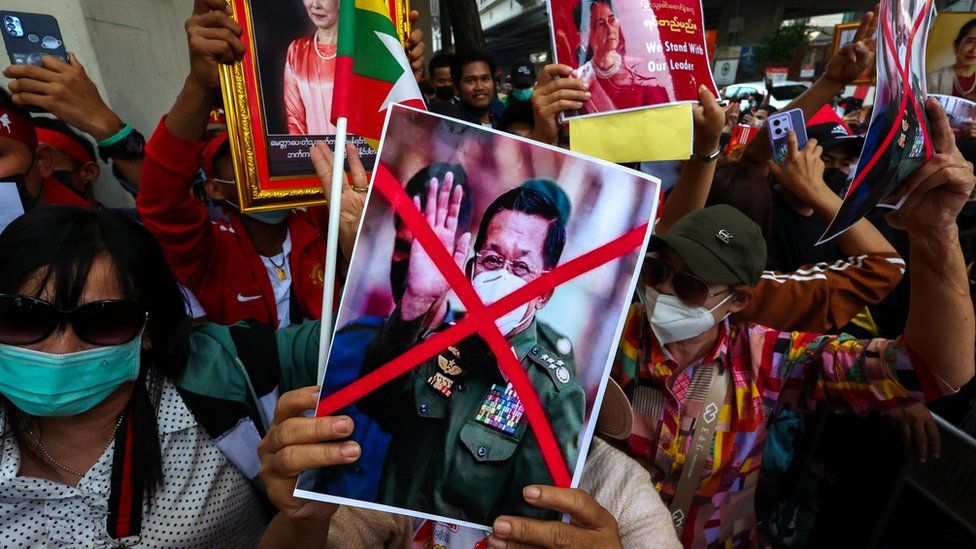
-
-
1 February 2021
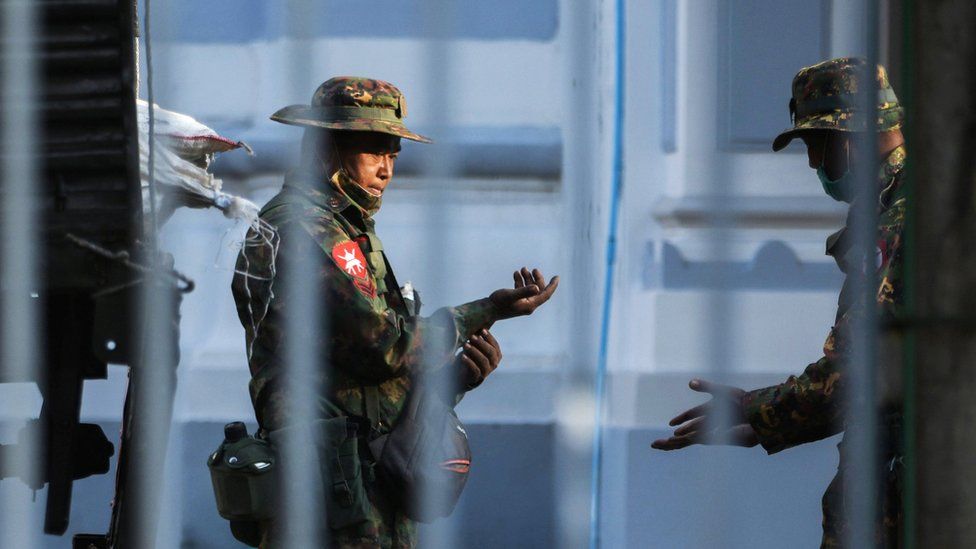
-
-
-
23 December 2022
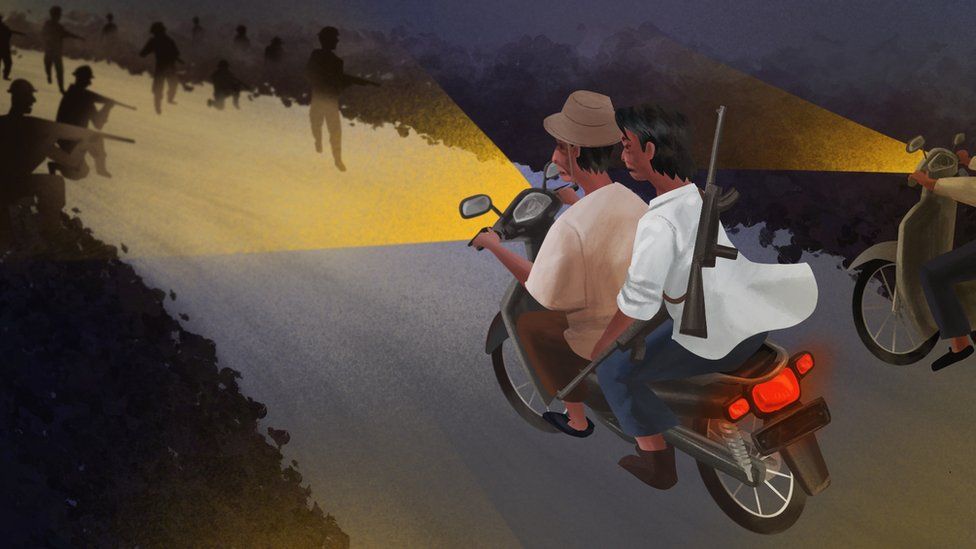
-
-
-
1 February 2021
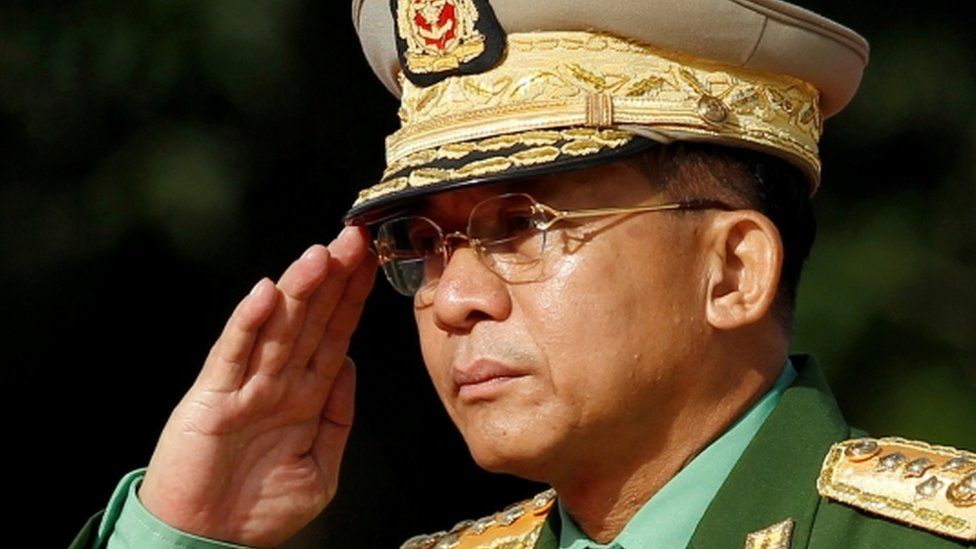
-

